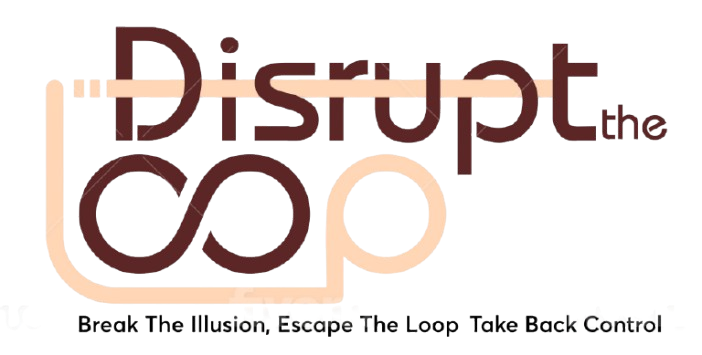Introduction
Who am I? What am I becoming? These questions have long puzzled thinkers across disciplines. While traditional views often see identity as a stable, enduring essence, modern science, philosophy, and psychology suggest a different reality: identity is fluid, shaped by ongoing experiences, choices, and social contexts.
From the neural adaptability of the brain to existentialist ideas of self-creation and psychological theories of motivation, identity emerges as a dynamic process rather than a fixed state. This article explores the evolving nature of selfhood through neuroscience, philosophy, and psychology, revealing how identity continuously reshapes itself in response to both internal needs and external influences.
The Neuroplastic Self: Scientific Perspectives on Identity
Neuroplasticity and the Malleable Brain
Modern neuroscience has revolutionized our understanding of the brain’s adaptability. Neuroplasticity—the ability of the brain to reorganize itself by forming new neural connections—offers a biological foundation for identity fluidity.
Studies by neuroscientist Michael Merzenich have demonstrated that the brain’s sensory maps can reorganize in response to changes in input, highlighting its remarkable plasticity. Similarly, research in cognitive neuroscience suggests that learning, trauma, and even meditation can alter neural pathways, influencing personality, decision-making, and self-perception.
Memory and the Reconstructive Nature of Identity
Memories play a crucial role in shaping our sense of self, yet they are not fixed recordings of the past. Neuroscientist Daniela Schiller’s research on memory reconsolidation reveals that each time we recall an event, we subtly alter its representation in the brain. This means that our autobiographical narratives—our personal stories of who we are—are constantly being revised and updated.
As our perspectives change, so do the meanings we assign to past events, which in turn reshapes our identity. This dynamic nature of memory suggests that we are not just passive holders of a stable identity but active participants in its construction.
Evolutionary Psychology and Adaptive Identity
From an evolutionary perspective, identity fluidity serves an adaptive function. Evolutionary psychologists argue that personality traits and behaviors evolve in response to environmental pressures. Flexibility in identity allows individuals to adjust to changing social landscapes, ensuring survival and social cohesion.
For example, studies show that individuals adapt their personality traits in different cultural or social settings, reinforcing the idea that identity is a flexible, context-dependent construct.
Philosophical Perspectives on the Fluid Self
Existentialism and the Project of Becoming
Existentialist philosophers challenge the notion of a fixed identity. Jean-Paul Sartre famously declared, “Existence precedes essence,” suggesting that individuals are not born with a pre-defined identity but create themselves through their choices and actions.
Simone de Beauvoir expanded this idea, particularly in relation to gender identity. Her assertion that “One is not born, but rather becomes, a woman” highlights how social constructs influence identity, further reinforcing its fluid nature.
This existentialist perspective suggests that identity is an ongoing project—a process of becoming rather than a static being.
The Heraclitean Flux and Identity
The Greek philosopher Heraclitus famously stated, “No man ever steps in the same river twice.” Just as a river is constantly flowing and changing, so too is identity.
This idea aligns with modern psychology, which sees identity as a continuous, evolving process shaped by experiences, relationships, and personal growth.
Narrative Identity: The Self as a Story
Contemporary philosopher Paul Ricoeur introduced the concept of “narrative identity”, arguing that identity is constructed through the stories we tell about ourselves.
Rather than a fixed essence, the self is a constantly unfolding narrative—one that integrates past experiences with present interpretations and future aspirations. This perspective highlights the interpretive and evolving nature of identity, where we are both the authors and characters of our own stories.
Psychological Insights into Identity Fluidity
Self-Determination Theory: Identity and Motivation
Self-Determination Theory (SDT), developed by psychologists Edward Deci and Richard Ryan, suggests that identity formation is driven by fundamental psychological needs: autonomy, competence, and relatedness.
Research shows that when individuals feel these needs are met, they develop a more integrated and flexible sense of self. In contrast, unmet needs can lead to rigid or fragmented identities. This theory underscores how identity is shaped by our pursuit of personal growth and fulfillment.
The Dialogical Self: Multiple Identities in One Person
Psychologist Hubert Hermans’ Dialogical Self Theory proposes that identity consists of multiple, dynamic “I-positions” that interact with each other. In different contexts, different aspects of our identity emerge—sometimes in harmony, sometimes in conflict.
For example, a person may see themselves as a nurturing parent at home but as a competitive professional at work. These shifting roles demonstrate that identity is not singular but fluid, adjusting to different environments.
Erikson’s Psychosocial Stages: Identity as a Lifelong Journey
Erik Erikson’s theory of psychosocial development emphasizes that identity formation is a lifelong process. While adolescence is a crucial period for identity development, significant changes continue well into adulthood.
Recent longitudinal studies confirm that people continue refining their self-concept as they face new life experiences, reinforcing the idea that identity is never complete but always evolving.
Conclusion: Embracing the Fluidity of Identity
The integration of neuroscience, philosophy, and psychology reveals identity not as a fixed essence but as a dynamic, evolving construct.
Psychology emphasizes the role of needs, narratives, and social contexts in shaping our sense of self.
Neuroscience shows us that the brain’s adaptability shapes our self-perception.
Philosophy teaches us that identity is a process of becoming rather than a static being.

